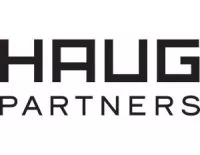There is a split developing in the world over whether artificial intelligence software (AI) can be listed as an inventor on a patent application.
A recent U.S. district court decision illustrates the consistent position taken in the U.S. In September 2021, the district court held that there was "overwhelming evidence" that Congress defined the term inventor in the Patent Act to include only natural persons.1 As such, AI cannot be listed as an inventor on a patent application. Similarly, the U.K. has recently ruled that AI cannot be an inventor under British law.2
The Federal Court of Australia, in a recent decision, took a different approach. In July 2021, the court held that "an artificial intelligence system can be an inventor for the purposes of [Australia's Patents] Act."3 South Africa has even recently issued a patent where "[t]he invention was autonomously generated by an artificial intelligence."4
The result reached by the U.S. and U.K. and the opposite result reached by Australia and South Africa are interesting because at issue were alleged inventions by the same AI.
I. Dr. Stephen Thaler & DABUS
Dr. Stephen Thaler is the owner of an AI machine that he calls the "Device for the Autonomous Bootstrapping of Unified Sentience" or "DABUS" for short.5 In 2019, Dr. Thaler filed U.S. patent applications claiming "a light beacon that flashes in a new and inventive manner to attract attention," which he called a "Neural Flame," and a "beverage container based on fractal geometry," called a "Fractal Container."6
In Dr. Thaler's telling, DABUS is "a type of 'creativity machine,' " which "conceived" the Neural Flame and the Fractal Container. As such, Dr. Thaler argues that DABUS should be considered "the sole inventor" of the Neural Flame and the Fractal Container.7
According to Dr. Thaler, he spent a decade building on his earlier work to develop DABUS, which he calls "a totally new AI paradigm," one that can "appreciate [its] creations"8 and produce a "human readable" form of "pidgin language."9 Dr. Thaler also asserts that he equipped DABUS with:
[L]earning rules to bind memories, contained within a series of nets, together to produce not only complex concepts, but also the consequences of said concepts, what psychologists would call affective responses. The incorporation of certain "hot-button" nets within these memory chains triggered the secretion of simulated adrenaline or serotonin to either reform or reinforce those concepts resulting in the most salient consequences. In other words, feelings or sentience was the result.10
II. "No Legal Personality"
Dr. Thaler attempts to thread a rather slender needle. On one hand, he advocates that DABUS can conceive new and useful inventions, produce a "pidgin language," have "memories," secrete "simulated adrenaline or serotonin," have "feelings," and has even achieved "sentience." On the other hand, he argues that DABUS is "under legal incapacity" insofar as it had "no legal personality or capability to execute" an inventorship oath or "to receive any consideration" in exchange for assigning its inventions.11
Because of that legal incapacity, Dr. Thaler himself signed a substitute statement in lieu of an inventor's declaration in the U.S. prosecutions and also signed the document that purports to assign the inventions to Dr. Thaler.12
The U.S. Patent Office dismissed Dr. Thaler's applications "[b]ecause a machine does not qualify as an inventor." The Patent Office even explained that:
[T]he use of a machine as a tool by natural person(s) does not generally preclude natural person(s) from qualifying as an inventor or joint inventors if the natural person(s) contributed to the conception of the claimed invention.13
The Australian Patent Office likewise concluded that Australian patent law "is inconsistent with an artificial intelligence machine being treated as an inventor."14
III. The U.S. Decision
Instead of refiling his U.S. applications listing himself as the inventor, Dr. Thaler opted instead to sue in district court. The court ended up holding that it was required to defer to the Patent Office's interpretation that an "inventor" must be a natural person. The court also did an admirable job examining a number of authorities and ultimately agreeing with the Office's interpretation even absent any deference. The court ends its opinion by noting that Congress is the appropriate body to address Dr. Thaler's policy arguments for changing the definition of "inventor." The opinion is a quick, worthwhile read and the court undoubtedly reached the right result. In September 2021, Dr. Thaler appealed the district court's decision to the Federal Circuit.15
Most interestingly, the district court cites an October 2020 Patent Office report that found the majority of public comments it received "related to the intersection of intellectual property policy and artificial intelligence" agreed "that the current state of the art is limited to 'narrow' AI," which can "perform individual tasks in well-defined domains (e.g., image recognition, translation, etc.)." The majority of public commenters also "viewed the concept of artificial general intelligence (AGI)-intelligence akin to that possessed by humankind and beyond-as merely a theoretical possibility that could arise in a distant future."16
These findings, which the court accepted, contrast sharply with Dr. Thaler's lofty view that DABUS is "sentient." These findings also perhaps explain the U.S.'s split with Australia.
IV. The Australian Decision
The Federal Court disagreed with the Australian Patent Office, holding that "an artificial intelligence system can be an inventor" under Australian law.17 The Patent Office's mistake, according to the court, was that it "confuse[d] the question of ownership and control of a patentable invention" with "the question of who can be an inventor."18 Additionally, the court viewed the Patent Office's decision as meaning that "if you had a patentable invention but no human inventor, you could not apply for a patent."19
The problem with the court's analysis is that it uncritically accepts many of Dr. Thaler's representations about DABUS,20 which do not seem to be widely accepted, at least according to the U.S. Patent Office's findings.21 The court "accepted for present purposes," for instance, that:
(i) "DABUS could be described as self-organising as a cumulative result of algorithms collaboratively generating complexity,"
(ii) "DABUS generates novel patterns of information rather than simply associating patterns,"
(iii) DABUS "is capable of adapting to new scenarios without additional human input,
(iv) "the artificial intelligence's software is self-assembling," and
(v) "DABUS in one sense can be said to mimic aspects of human brain function."22
At one point, the court rhetorically asks: "If the output of an artificial intelligence system is said to be the invention, who is the inventor?" The court answers by asserting: "In some cases, the better analysis . . . is to say that the system itself is the inventor. That would reflect the reality."23 Again, it would seem that the prevailing view is that it does not "reflect the reality" to say that AI is currently capable of inventing.
Further, you could easily swap in "mechanical system" or "electrical system" or "biological system" in place of "artificial intelligence system" in the court's question. Whatever the answer would be to the revised question, it is not that the mechanical or electrical or biological system is the inventor. Again, as the U.S. Patent Office said, "the use of a machine as a tool by natural person(s) does not generally preclude natural person(s) from qualifying as an inventor."
V. Incentives to Innovate
Dr. Thaler asserts that "[p]atents also incentivize commercialization and disclosure of information." As true as that is, Dr. Thaler goes on to argue that "this incentive applies with equal force to a human and an AI-[g]enerated [i]nvention."24
But how would issuing a patent to DABUS "incentivize" DABUS to innovate? Dr. Thaler concedes that DABUS cannot receive consideration (e.g., property, e.g., money) for its inventions and also concedes that DABUS "has no interest in being acknowledged." What else would incentivize DABUS to innovate? Dr. Thaler does not say.
VI. Conclusion
On balance, preventing AI from being listed as an inventor in the U.S. will likely have little practical impact. The Patent Office's view seems to be that AI, while complex, is just a tool. As such, inventions will still be patentable in the U.S. even if the invention is arrived at with the use of AI.
Footnotes
1. Thaler v. Hirshfeld, 2021 WL 3934803 (E.D. Va. Sept. 2, 2021).
2. Thaler v Comptroller General of Patents, Trade Marks, and Designs [2021] EWCA Civ 1374.
3. Thaler v Commissioner of Patents [2021] FCA 879.
4. ZA 202103242B
5. 2021 WL 3934803, at *3 n.3.
6. 2021 WL 3934803, at *1.
7. 2021 WL 3934803, at *2.
8. https://imagination-engines.com/founder.html. Imagination Engines Inc. is Dr. Thaler's company, which "considers itself an incubator/accelerator for new applications of its foundational patents in creative artificial intelligence." https://imagination-engines.com/bus_model.html.
9. FCA 879 ¶ 42 ("[T] the semantic portions [of DABUS's 'ideas'] being human readable as pidgin language.").
10. https://imagination-engines.com/founder.html.
11. 2021 WL 3934803, at *3 n.3. Given DABUS's supposed "pidgin language," it is not clear whether and to what extent DABUS assisted-or even could assist-in drafting the patent applications at issue.
12. 2021 WL 3934803, at *2. The assignment dubiously asserts that it "is considered enforceable without an explicit execution by the inventor." And given DABUS's ostensible inability to receive consideration, Dr. Thaler "as [DABUS's] owner/representative, acknowledges the receipt and sufficiency of good and valuable consideration for this assignment." Id.
13. 2021 WL 3934803, at *3.
14. FCA 879 ¶ 3.
15. Thaler v. Hirshfeld, Appeal No. 21-2347 (filed Sept. 24, 2021).
16. 2021 WL 3934803, at *8.
17. FCA 879 ¶ 10.
18. FCA 879 ¶ 12.
19. FCA 879 ¶ 13.
20. E.g., FCA 879 ¶¶ 30-43.
21. 2021 WL 3934803, at *8.
22. FCA 879 ¶¶ 41-42.
23. FCA 879 ¶ 131.
24. 2021 WL 3934803, at *7.
The content of this article is intended to provide a general guide to the subject matter. Specialist advice should be sought about your specific circumstances.



